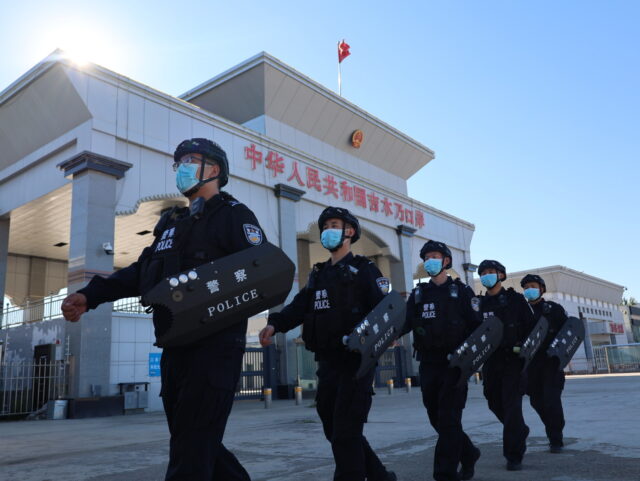The European Union has now formally proposed a ban on all goods made with forced labour from being sold within the bloc, a move that is seen as being aimed at China’s abuse of minorities.
A ban on the sale of all goods manufactured with the use of forced labour is now a step closer to being implemented in the EU, with the European Commission releasing a draft proposal detailing the measure on Wednesday.
While officials have insisted that the ban will not be targeted at any one company or industry, the push for further legislation on the issue is largely seen as being in response to Communist China’s alleged use of minority slave labour.
According to a press release published by the European Union, the ban as proposed covers items produced both inside and outside the EU, and looks to deal with both private and public forced labour without discriminating against any particular company or industry.
“This proposal will make a real difference in tackling modern-day slavery, which affects millions of people around the globe,” European Commission trade tsar Valdis Dombrovskis said regarding the ban.
“Our aim is to eliminate all products made with forced labour from the EU market, irrespective of where they have been made,” he continued. “Our ban will apply to domestic products, exports and imports alike.”
Thierry Breton, the bloc’s internal market chief, meanwhile decried goods produced with forced labour as being “unsustainably” made, saying that the EU needs to be “assertive” in “defending” its values, as well as enforcing “rules and standards”.
“Our Single Market is a formidable asset to prevent products made with forced labour from circulating in the EU, and a lever to promote more sustainability across the globe,” the politician — who previously threatened to kick Twitter out of the EU should Elon Musk lower the amount of censorship on the platform — remarked.
While European Union bigwigs have insisted that these measures are not targeted at any one industry or enterprise, it has been less vocal as to whether or not a specific country has prompted the proposal of new rules.
This may be because one specific state did indeed spark interest in the ban, with POLITICO reporting that the new measures are being seen as a response to Communist China using the forced labour of minority ethnic groups to manufacture various goods.
In particular, the leftist regime’s use of Uyghurs — a Muslim-majority ethnic group from the province of Xinjiang — has drawn particular ire in recent years, with a United Nations report published late last month lending further credence to reports that minorities from the region have been forced into working in various factories since 2018.
The report also found that allegations that Chinese authorities have been arbitrarily detaining large swathes of the civilian population of Xinjiang are credible, and that state authorities have likely been torturing individuals from Uyghur and other ethnic minority backgrounds under the guise of counter-extremism efforts.
While the EU’s proposed law could mean it wants to take a harsher line in regards to this issue, the bloc in the past has been rather lax on alleged human rights abuses in Xinjiang, with authorities even reportedly allowing firms within the bloc to export surveillance equipment to China, some of which may have been used to enable the continued abuse of human rights by state authorities.

COMMENTS
Please let us know if you're having issues with commenting.